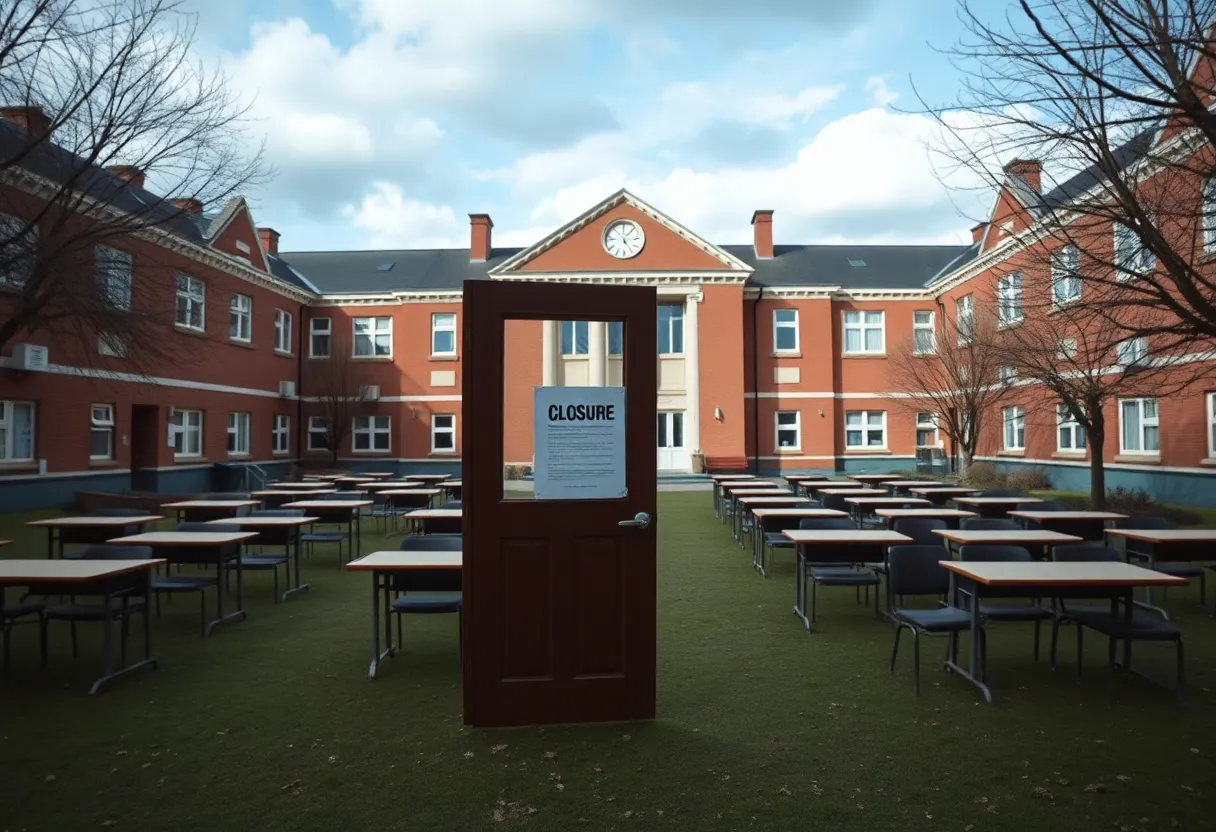News Summary
Governor Josh Shapiro supports Pennsylvania State University’s decision to close seven satellite campuses due to declining enrollment and rising costs. The closures will affect campuses in multiple regions, impacting around 3.6% of the student body and faculty. Local leaders and community members have expressed concerns regarding the decision’s impact on education and economic stability in affected areas. Despite the impending closures, Penn State aims to provide accessible pathways for students to complete their degrees through other campuses and online options.
Pennsylvania – Governor Josh Shapiro announced his support for the leadership of Pennsylvania State University following the board of trustees’ decision to close seven of its satellite campuses. This decision, which passed with a vote of 25-8, is set to take effect after the end of the 2026-2027 academic year. The closures will impact campuses in DuBois, Fayette, Mont Alto, New Kensington, Shenango, Wilkes-Barre, and York, affecting approximately 3.6% of the university’s student body, 3.4% of the faculty, and 2.2% of total staff.
During his visit to A. Philip Randolph Career and Technical High School in Philadelphia, Governor Shapiro engaged with students, teachers, and legislators. He recognized the necessity of adjusting institutional structures in light of declining enrollment and rising operational costs in Pennsylvania’s higher education sector. Shapiro emphasized his administration’s commitment to support affected communities, noting the potential adverse consequences these closures could have locally.
The decision to close the campuses reflects a broader trend in higher education throughout the state, which has seen a reduction in student demand coinciding with rising expenses. Penn State’s leadership, under President Neeli Bendapudi, expressed regret regarding the media’s early dissemination of news about the closures before the community received sufficient context. Bendapudi indicated that comprehensive transition plans are being formulated to aid impacted students, faculty, and staff.
Options for Students
Students currently enrolled at the satellite campuses will have the opportunity to complete their degrees at any of the remaining 13 Penn State campuses or through online offerings via the World Campus. The university also offers options through the Penn State College of Medicine and Dickinson Law, providing students with accessible pathways to achieve their educational goals despite the campus closures.
Local Response
Local leaders, including Senate Majority Leader Joe Pittman, have acknowledged the necessity of these closures while advocating for initiatives that will sustain educational opportunities in neighborhoods affected by the changes. He mentioned ongoing discussions to ensure the continuation of local projects, such as the launch box and digital foundry in New Kensington.
Other members of the legislature voiced concerns regarding the closures, particularly U.S. Representative Glenn Thompson and State Representatives Scott Conklin and Michael Armanini. Thompson criticized the decision to close the DuBois campus, arguing that it undermines the institution’s educational mission. Conklin emphasized the importance of maintaining accessible pathways for high school graduates and those seeking retraining. Armanini underscored the campus’s significance as a contributor to local economic activity and job creation, particularly within the manufacturing sector.
Community Impact and Criticism
Faculty members and community leaders at the campuses slated for closure expressed their discontent with the decision, citing its potential negative repercussions for local students and economies. They criticized the process as hasty and lacking a documented, evidence-based rationale, expressing concerns that local students would struggle to find degree programs without traveling significant distances.
Despite the challenges presented by these closures, Penn State remains committed to investing in its remaining campuses. Bendapudi assured that the university would continue to prioritize its presence across the state and adapt to the changing landscape of higher education in Pennsylvania.
As the state and university engage in complex discussions surrounding this pivotal decision, all stakeholders hope for solutions that mitigate the impacts on students and local communities, emphasizing the need for ongoing educational access and economic stability.
Deeper Dive: News & Info About This Topic
- Centre Daily: Penn State Updates
- Wikipedia: Penn State University
- The Center Square: Pennsylvania News
- Google Search: Penn State University closure
- Farm and Dairy: Plant Excellence Center
- Encyclopedia Britannica: Pennsylvania
- Onward State: Shapiro’s Visit
- Google News: Josh Shapiro Penn State
- PennLive: Pennsylvania Budget
- Google Scholar: Penn State University closures

Author: STAFF HERE PHILADELPHIA WRITER
The PHILADELPHIA STAFF WRITER represents the experienced team at HEREPhiladelphia.com, your go-to source for actionable local news and information in Philadelphia, Philadelphia County, and beyond. Specializing in "news you can use," we cover essential topics like product reviews for personal and business needs, local business directories, politics, real estate trends, neighborhood insights, and state news affecting the area—with deep expertise drawn from years of dedicated reporting and strong community input, including local press releases and business updates. We deliver top reporting on high-value events such as Mummers Parade, Philadelphia Flower Show, and Thanksgiving Day Parade. Our coverage extends to key organizations like the Greater Philadelphia Chamber of Commerce and United Way of Greater Philadelphia, plus leading businesses in telecommunications, food services, and healthcare that power the local economy such as Comcast, Aramark, and Children's Hospital of Philadelphia. As part of the broader HERE network, we provide comprehensive, credible insights into Pennsylvania's dynamic landscape.





